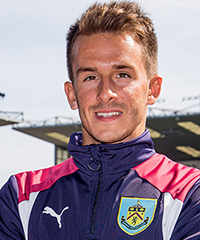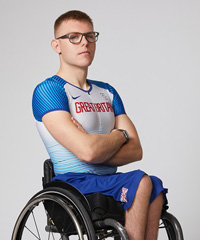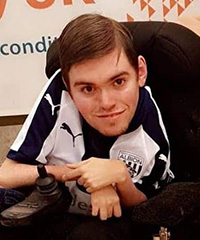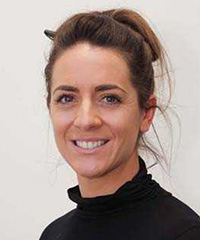International Day of Persons with a Disability - reflections from past students

Thursday 3 December marks International Day of Persons with a Disability. This day has been observed annually around the world since 1992, with the aim of promoting “the rights and well-being of persons with disabilities in all spheres of society and development, and to increase awareness of the situation of persons with disabilities in every aspect of political, social, economic and cultural life” (United Nations, 2019). This year’s theme is “Building Back Better: toward a disability-inclusive, accessible and sustainable post-COVID-19 World” (United Nations, 2020).
A recent report from the Office for Students has highlighted that the number of students with disabilities continues to increase and now accounts for 13% of all students in higher education institutions (Williams et al, 2019).
In the School of Sport and Exercise Sciences, we have committed to prioritising equity, diversity and inclusivity, as evidenced by our recent success in gaining an Athena SWAN Charter Award and appointment of an EDI working group. Among our aims is to ensure that students with disabilities are provided equitable opportunity and appropriate support to achieve their full potential. The School has chosen to celebrate International Day of Persons with Disabilities by highlighting the successes of some of our past students. The School are immensely proud of these students who have completed their studies at LJMU and continued to flourish within the sport sector and beyond, whilst also being inspirational role models to current and prospective students.
Matt Pounder
Inclusion and Equality Programmes Executive at the Premier League
 "My experience of studying at LJMU was extremely positive and I’m left in no doubt that the course, infrastructure and most importantly the staff, created the strongest of foundations for me to build a career in the sporting industry upon. This is something that for a long time, I didn’t feel would be achievable for me given the severity of my visual impairment (registered blind through two conditions), but, throughout my studies and time at LJMU, I was met with and supported through kindness, encouragement, empathy and positive challenge, enabling me to redefine and unlock my potential.
"My experience of studying at LJMU was extremely positive and I’m left in no doubt that the course, infrastructure and most importantly the staff, created the strongest of foundations for me to build a career in the sporting industry upon. This is something that for a long time, I didn’t feel would be achievable for me given the severity of my visual impairment (registered blind through two conditions), but, throughout my studies and time at LJMU, I was met with and supported through kindness, encouragement, empathy and positive challenge, enabling me to redefine and unlock my potential.
"Upon joining the university, I was quickly able to access provision that would help to mitigate the impact of my poor eyesight in lectures, around campus and throughout general student life, including a laptop with magnification software, a note-taker for lectures, PowerPoint slides in advance of any session and a door always open approach from those supporting me. I was empowered by each of my lecturers and made to feel like every other student, which is a testament to the inclusive culture that exists across the university.
"From university, my journey started out at Liverpool Football Club, where I coached sport across numerous projects, both locally and internationally. I then moved back to my hometown of Burnley to take up a position at the Claret’s newly formed charity, Burnley FC in the Community. I was promoted to Head of Sport at 24, a role that saw me manage all of the organisation’s sporting provision, including the women’s and girls’ football pathway, the Danny Ings Disability Sport Project, player development centres and a number of Premier League initiatives.
"I currently work at the Premier League Charitable Fund as Community Programmes Executive. I lead the Premier League (PL) and Professional Footballers’ Association (PFA) Community Fund, which enables Club Community Organisations (CCOs) to access funding to develop meaningful projects that are driven by data and local need, organisational strategy and partnership working. I also lead on the organisation’s equality, diversity and inclusion portfolio, with the aim of creating more inclusive environments where everyone can achieve."
Laura Ainsworth
Sports and Challenge Events Co-ordinator for The Guide Dogs for the Blind Association UK
"I chose to undertake the course not only as it was a topic I am really interested in, but because of the support I was offered as a disabled student.
"I enjoyed the entire experience and was encouraged to ask for any help I needed throughout. From the one-to-one support, technical support and lecturers being ‘deaf aware’, it was a great environment for me to enjoy my studies.
"Upon completing the degree I took a gap-year and travelled around the world with my now husband and I now work in the charity sector as a Sports and Challenge Events Co-ordinator, and get to work at awesome events such as the London Marathon and Crufts. I really cannot recommend this degree enough for those considering it."
Nathan Maguire
Paralympic Athlete and Panathalon Ambassador
 "Like every new student starting university there are a combination of unknowns - what to expect, what will the course and other students be like - which can be worrisome. However, as a disabled person there are added concerns which can make new experiences daunting - course activities, accessibility, the perceptions of others - students and staff, and the availability and location of facilities. However, I can honestly say, that despite my initial apprehensions, this was not the case for me at Liverpool John Moores University. I am a firm believer in equal opportunities for all, which is why I chose the course, and it was sure to affirm my passion for sport and inclusion.
"Like every new student starting university there are a combination of unknowns - what to expect, what will the course and other students be like - which can be worrisome. However, as a disabled person there are added concerns which can make new experiences daunting - course activities, accessibility, the perceptions of others - students and staff, and the availability and location of facilities. However, I can honestly say, that despite my initial apprehensions, this was not the case for me at Liverpool John Moores University. I am a firm believer in equal opportunities for all, which is why I chose the course, and it was sure to affirm my passion for sport and inclusion.
"Being a member of the British Paralympic team throughout my time at LJMU, I was supported by the University to ensure that neither my studies nor my athletics career showed any signs of slipping. This support and understanding aided my sporting and academic progress and in my time there I was able to compete at the Paralympics in Rio, the Commonwealth Games and two European Championships, the latter event resulting in me winning three Bronze medals and a Gold in the 4x100m relay, whilst simultaneously completing my degree.
"I have been an ambassador for the Panathlon Charity for three years. The skills learnt in my degree have enabled me to confidently and professionally apply theory to practice and massively extend the reach and success of the charity’s mission, a mission which has taken on added importance and challenge in the midst of a pandemic."
Marcus Harrison
England Powerchair footballer
 "When I was doing my dissertation, I was away for a lot of weekends, because my dissertation was just before the European Championships, so the University and my personal tutor helped me a lot by providing flexible deadlines. I was also able to integrate my football into my studies and look at certain aspects of the course, like performance analysis, within Powerchair Football.
"When I was doing my dissertation, I was away for a lot of weekends, because my dissertation was just before the European Championships, so the University and my personal tutor helped me a lot by providing flexible deadlines. I was also able to integrate my football into my studies and look at certain aspects of the course, like performance analysis, within Powerchair Football.
"The University made sure it was all accessible, all the facilities, and my scribe - she helped me throughout university, she was really good and she helped me get through it all. I probably couldn’t have done it without her. All of the lab sessions were adapted so I could get involved. All of my accommodation was adapted and the staff were really helpful and the care company I had were brilliant too.
"I live on my own now, which, I probably wouldn’t be doing had I not gone to university, I would probably still be living at home. But university isn’t just about studying, it helps you grow up. When I went to uni I moved out which enabled me to grow up, I learned to live, met loads of friends and became a lot more independent. I’m much more confident and have better social skills, so the experience has helped me with that because I am a completely different person now to the person you would have met before uni. It’s the best thing I’ve ever done.
"Don’t think you can’t go to university because you’re disabled, go and have a look at the university, there’s no reason why you can’t go. I would definitely recommend it."
Since university Marcus, has continued to play Powerchair football, travelled and is currently pursuing a social media business venture.
Tori Sprung
Senior Lecturer in Sport and Exercise Science
 "Talking freely and fluently is something most people take for granted, but when you have a speech impediment life is not so simple. My stutter, as I call it, was much more audible as a child and ranged from stumbling over my words to not being able to voice them at all; phone calls were non-starters and taking my turn to read aloud in school was a source of daily dread.
"Talking freely and fluently is something most people take for granted, but when you have a speech impediment life is not so simple. My stutter, as I call it, was much more audible as a child and ranged from stumbling over my words to not being able to voice them at all; phone calls were non-starters and taking my turn to read aloud in school was a source of daily dread.
"By the time I went to University, I was already working tirelessly on developing coping strategies. The staff in the School of Sport and Exercise Sciences, and my fellow students, were always reassuring and patient which meant that I never felt intimidated or isolated. Now, I can go whole days without audibly stuttering and deliver lectures to upwards of 200 students. That prospect was, truly, an impossibility to my 10 year old self, I NEVER thought it would be possible!
"You never ‘overcome’ a stammer. It requires a huge amount of energy to manage it as best you can. I still “umm” for multiple, excruciating seconds to buy time, feign losing my train of thought or frantically grapple around for replacement words, but having a supportive and compassionate working environment is immeasurably helpful. I am thankful to the staff who helped me in my days as a student and to my colleagues and our students who continue to do so today."
Our School’s commitment to widening participation, to engage traditionally underrepresented groups, such as people with disabilities has been recognised nationally. Locally, these aspirations are evidenced by our close relationships with organisations such as Greenbank College, a leading national disability sport organisation, in collaboration with whom we host a foundation degree in Disability Sport Coaching and Development. Students on this programme are individuals who may not have considered higher education as a viable option but whose needs could be appropriately supported by studying at Greenbank. As part of this novel foundation degree, students have the option to enrol at LJMU for their final year of study to ‘top-up’ to an undergraduate degree, where all reasonable adjustments will be met to ensure appropriate support and maximise the students learning experience.
Examples of more established support mechanisms for students with disabilities include providing course materials in accessible formats, making sure timetables and rooms are accessible for students with mobility issues, encouraging flexible teaching methods, inclusive technology or software, additional support during exams, allowing additional time to complete assessments or support for individuals who need one-to-one support or note-takers.
Looking to the future, the School is hoping to launch a Disability Engagement Network in 2021, which will provide a supportive forum for alumni and current students to share experiences. We welcome feedback on how we can develop our practices to further support students with disabilities. If you would like to join us please get in touch, with Milly Blundell, our School Disability Co-ordinator via email (m.e.blundell@ljmu.ac.uk). If you are one of our current students and feel you might need additional support, or you have a disability and are thinking of studying at LJMU then please do not hesitate to get in touch with Milly Blundell (contact details noted above) or the University Disability Team via email (Disability@ljmu.ac.uk) or by phone (0151 231 3164/3165). For further information, you can also access the Student Support page for students with a disability and the University's Diversity and Inclusion page.
If you are interested in studying sport at LJMU have a look at our courses.


